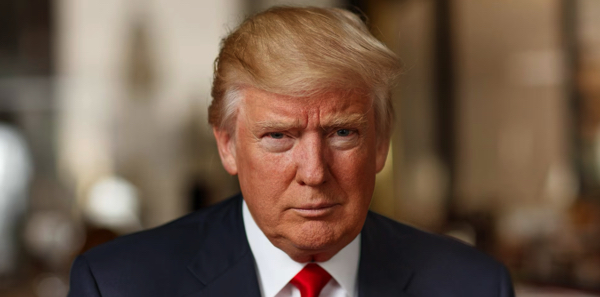 Parler
Parler Gab
Gab
- Rubio warns judicial overreach in South Sudan deportation block derails U.S. foreign policy and military strategy.
- Federal judge halts flight, requiring custody maintenance amid claims of unlawful removals to third countries.
- Diplomatic tensions escalate with key African nations, including Djibouti, host of America’s only African military base.
- Administration argues deportees exhausted legal rights, while court demands excessive procedural safeguards.
- Case highlights broader clash over executive authority to enforce immigration and foreign policy priorities.
The ruling and its immediate impact
The dispute centers on a May 24 order by U.S. District Judge Brian Murphy of Massachusetts, which halted a deportation flight after attorneys for deportees from Myanmar and Vietnam argued they were subject to unlawful removal to a third-world country. Murphy’s injunction requires the U.S. government to retain custody of all migrants removed to South Sudan or other third nations until courts confirm the action’s legality—a requirement critics say shackles statecraft. The halted flight had been bound for Djibouti, where the U.S. military maintains its sole African military base, strategic for counterterrorism and Horn of Africa operations. The detainees, including migrants from Myanmar, Laos, Vietnam, Cuba, Mexico, and South Sudan, now remain confined on the base, deepening U.S. officials’ concerns about overreach. In filings, the U.S. Department of Justice argued the order forces it to indefinitely hold “dangerous criminals” at a vital military site, arguing they “enjoyed the benefit of full process” and had no legal grounds to stall removal. Deportees, it said, failed to claim a fear of persecution—a required step under April’s court injunction—to delay repatriation.Rubio’s geopolitical alarm: “Irreparable harm” brews
Rubio’s late Friday filing ties the legal battle to broader foreign policy stakes, asserting that courts are now “interfering with quiet diplomatic efforts” and worsening military coordination. He emphasized consequences in three nations:- Libya: Court orders have “exacerbated internal political and security divisions,” he wrote, complicating U.S. efforts to stabilize a government amid civil war.
- Djibouti: The U.S. base hosts thousands of troops, support infrastructure, and intelligence operations. Rubio called the detention order “impermissible burdens” on military operations.
- South Sudan: Though once refusing to accept a deportee, Juba now cooperates with Washington—a relationship Rubio said risks rupture if judicial hand-wringing persists.
Third-country deportations and legal limits
The fight hinges on decade-old legal precedents governing third-country removal of illegal immigrants. Current statutes allow the U.S. to repatriate individuals to nations other than their home countries if they lack documentation and pose threats—a practice used by the Trump administration to relocate Venezuelan migrants to El Salvador. Recent tensions began when South Sudan’s government paused cooperation last April, prompting Rubio to retaliate by suspending U.S. visas for its nationals. But Judge Murphy’s injunction arose from a challenge by Myanmar and Vietnamese migrants, who argued South Sudan had not consented to their return—a claim the administration denies. “This is the same judicial overreach we’ve seen with Sanctuary Cities and anti-Trump election rulings—the Left weaponizing courts to block lawful executive actions,” said Rep. Matt Gaetz (R-Fla.), a legal conservative ally.A testing ground for executive authority
As hearings loom, both sides frame the case through constitutional lenses. The administration claims the judiciary has exceeded limits on separation of powers, citing Article II’s grant of foreign policy authority to the presidency. Meanwhile, immigrant advocates call the government’s approach inhumane. “The U.S. is forcing citizens into countries that refuse or can’t protect them,” argued Margaret Huang of Amnesty International. “Migrants must have the chance to prove safety concerns.” Rubio’s warning underscores a broader stakes: If courts can dictate diplomatic methods and detention logistics, they risk destabilizing alliances and exposing U.S. forces abroad to prolonged legal wrangling.Courts vs. statecraft—A new legal frontier
The South Sudan standoff underscores a deepening ideological rift in American governance. For conservatives, the case exemplifies judicial overreach encroaching on executive authority over war, diplomacy, and frontier security. Yet for plaintiffs and advocates, it challenges a regime perceived to prioritize expediency over human rights. As the U.S. military and diplomats hold their breath in Djibouti, the outcome could reshape how future administrations navigate courts during crises. For now, Rubio’s war of words has opened a new arena—a courtroom clash over who truly guards the nation. Sources for this article include: YourNews.com FoxNews.com TimesofIndia.comUtah uranium mine approval sparks debate over energy security vs. environmental risks
By Willow Tohi // Share
Trump administration cracks down on foreign truck drivers amid safety concerns
By Laura Harris // Share
Trump doubles steel tariffs to 50%, vows to protect U.S. industry
By Laura Harris // Share
Department of Education uncovers nearly $90 million in improper federal student aid payments
By Laura Harris // Share
Governments continue to obscure COVID-19 vaccine data amid rising concerns over excess deaths
By patricklewis // Share
Tech giant Microsoft backs EXTINCTION with its support of carbon capture programs
By ramontomeydw // Share
Germany to resume arms exports to Israel despite repeated ceasefire violations
By isabelle // Share










